|
| We just returned from nearly a week in Honolulu, first at the 2019 Climate Mayors Summit on and next at the US Conference of Mayors 87th Annual Meeting.
These meetings are very rewarding not only to showcase what Richmond is doing but also to learn from the successes of other cities. There are opportunities to network with other mayors, visit vendors of the latest technology, talk and listen to experts on many topics pertinent to cities and meet federal officials.
The theme of the 2019 Climate Mayors Summit on June 25 was Kakou,” which means “all of us,” or “we’re in this together.”

Figure 1 - Honolulu Mayor Kirk Caldwell hosted the Climate mayors Summit.
At the Climate mayors Summit, I was selected to serve on one of the three panels, “Risk and Climate Change: Mayors Navigating Financial Risk in the Climate Era.” I shared the podium with New Orleans Mayor La Toya Cantrell, Willis Towers Watson Senior Vice-president Samantha Medlock and Bank of America Senior Vice-president Brad Gewehr. Click here for a video of the panel presentation.
In my panel presentation, I described how with 32 miles of shoreline in Richmond, sea level rise is already affecting planning decisions in Richmond for projects right now as well as their costs. Richmond is paying for both GHG reduction and adaption with cap and trade funds from the State of California. I discussed the irony of using funds from the Chevron Environment and Community Investment Agreement for much of our GHG reduction efforts, with the Chevron Refinery being the largest stationery source of GHG in the State of California. I also described the lawsuits that Richmond and other cities and Counties are bringing to force the fossil fuel industry to fund climate adaptation.
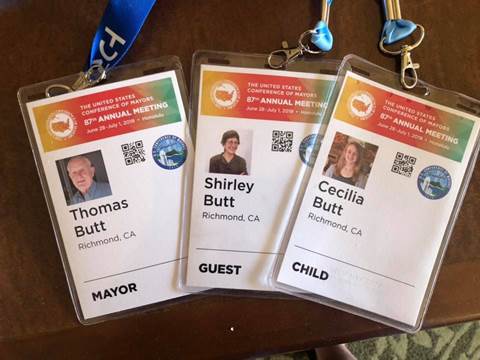
Figure 2 - Shirley and our granddaughter Cecilia also attended the conference. This was a great educational opportunity for 13-year old Cecilia.
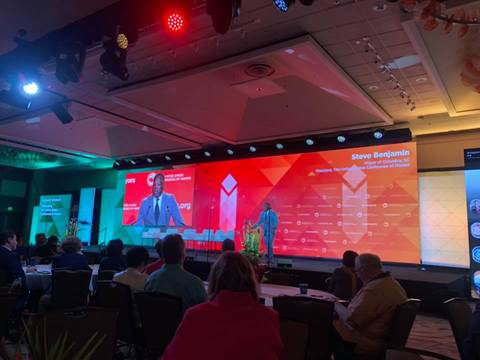
Figure 3 - The 87th US Conference of Mayors Annual Meeting kicked off on Friday morning led by President and Columbia SC Mayor Steve Benjamin.
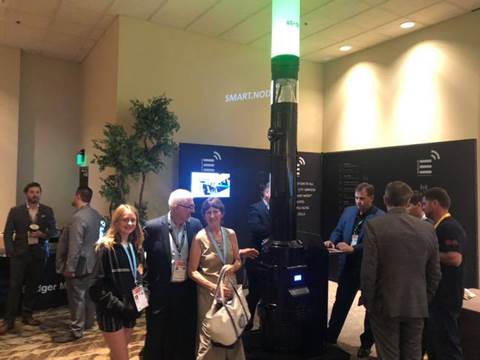
Figure 4 - There are lots of vendors offering the latest in technology for cities. This is a combination car charging station, phone charging station and streetlight avialable to cities at no cost.
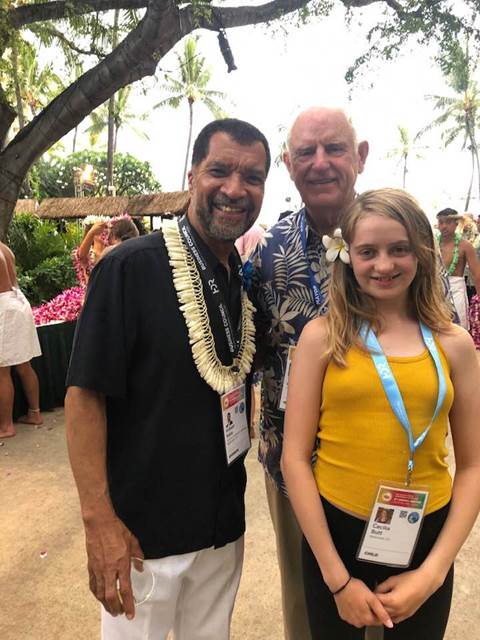
Figure 5 - The American Institute of Architects was a conference sponsor, and I met the current AIA President William Bates at the Friday evening event.
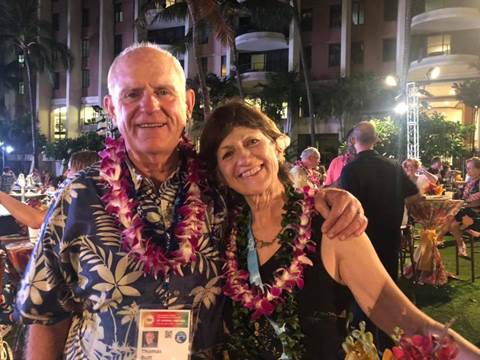
Figure 6 - Shirley and I enjoyed the Friday evening event with food and entertainment on the Great Lawn at Hilton Hawaiian Village on Waikiki Beach.
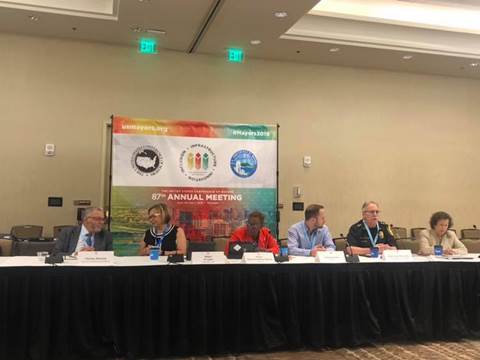
Figure 7 - Back to work on Saturday morning, beginning with a session on Strengthening Police-community Engagement. Transparency is critical. Former Philadelphia Police Commissioner and consultant Charles Ramsey: “Bad news does not improve with age.”
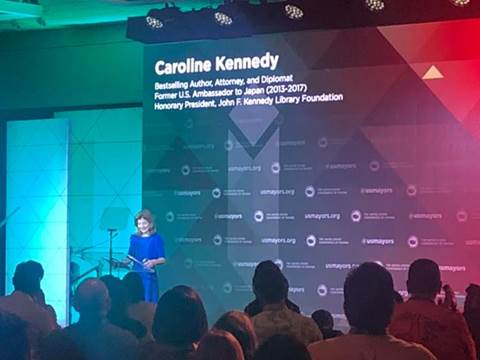
Figure 8 - At the Saturday Plenary Session, author, former Ambassador to japan and JFK's daughter, Caroline Kennedy talked about civil rights. President Kennedy attended the 1963 US Mayors Conference meeting in Honolulu in 1963, speaking about civil rights and rolling out the Civil Rights Act.
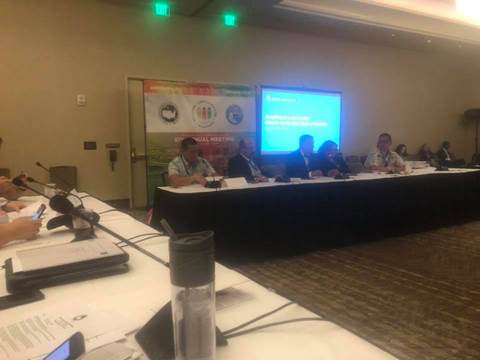
Figure 9 -In the USCM Environment Committee, there was an effort to postpone a vote on my Resolution 65 “Supporting Cities’ Rights and Efforts to Mitigate Climate Change Damages and Protect Taxpayers from Related Adaptation Costs.” The motion to postpone failed, and the resolution passed 9-1. It will move to a vote by the Membership on Monday. Thank you to cosponsors and supporters.
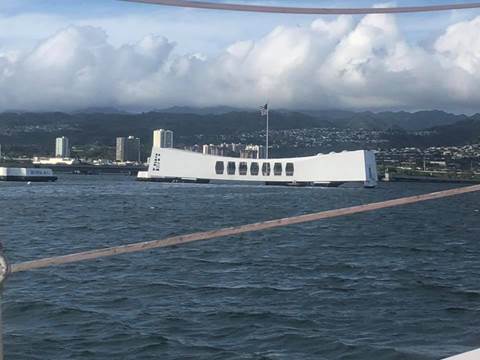
Figure 10 - Saturday night's event began with a boat tour of Pearl Harbor and a ceremony honoring the 2,400 Americans who died in the attack on the “Day that will live in infamy.”
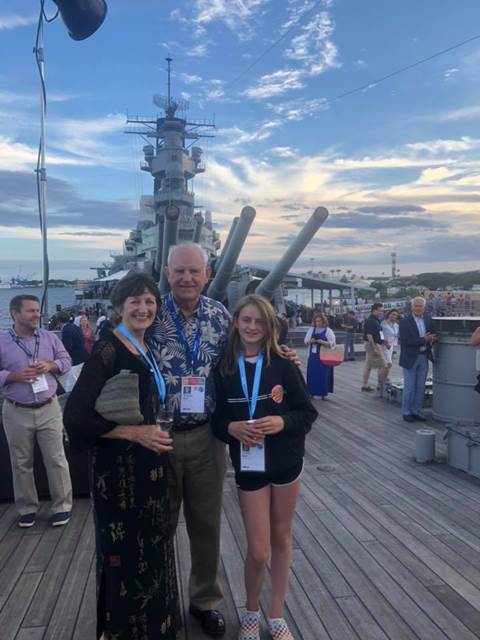
Figure 11 - Saturday night's event continued on the Battleship Missouri, which was the site of the formal surrender in Tokyo Bay on September 2, 1946. Pearl Harbor uniquely includes the sites of the beginning and the end of WWII for the United States.

Figure 12 – Sunday’s Plenary included remarks by Mayor Kazuhiro Matsui of Hiroshima, President Mayors for Peace. I’m proud to be a member
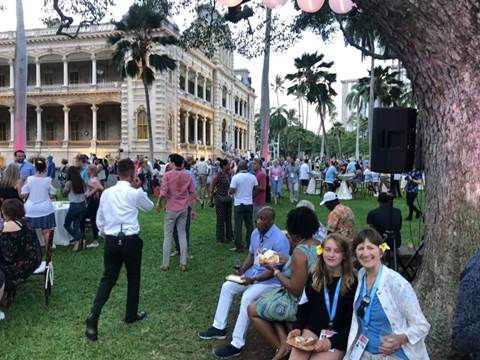
Figure 13 – Sunday’s evening event was at the Iolani Palace.

Figure 14 - Behind us is the bandstand that I documented 53 years ago. See It Was the Summer of 1966
June 21, 2019.
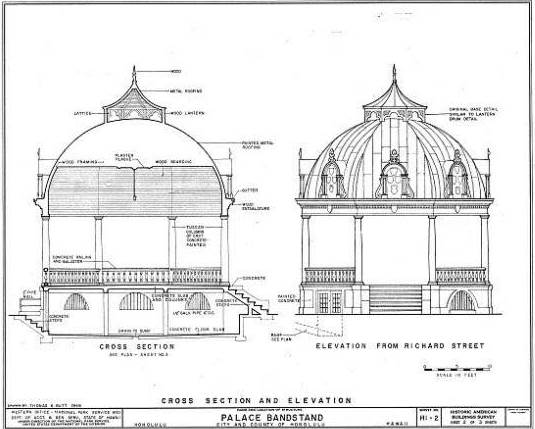
Figure 15 - One of my drawings of the bandstand.
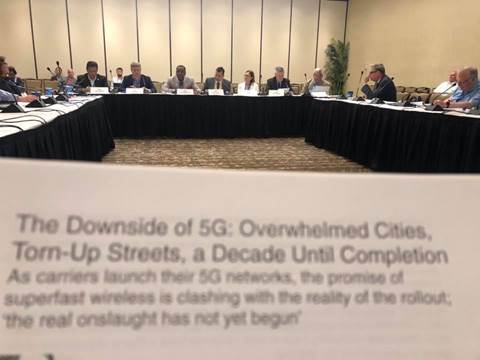
Figure 16 -Monday morning, a robust discussion today on small cell 5G deployment and the rights of cities. There are efforts in Congress for reform. H.R.530 - Accelerating Broadband Development by Empowering Local Communities Act of 2019
116th Congress (2019-2020)
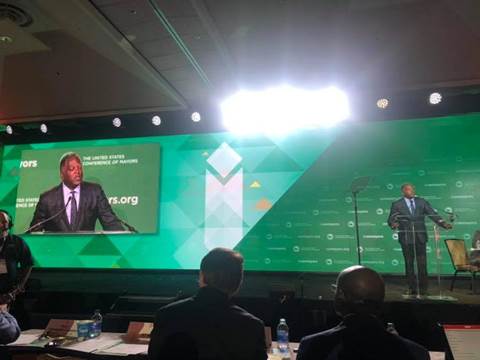
Figure 17 – My final session on Monday: voting on policy resolutions by member mayors. My Resolution 65 “Supporting Cities’ Rights and Efforts to Mitigate Climate Change Damages and Protect Taxpayers from Related Adaptation Cost.” was adopted unanimously.
Below is an article on the adoption of Resolution 65:
Mayors Group Votes to Support Cities’ Right to Sue Oil Industry for Climate Damages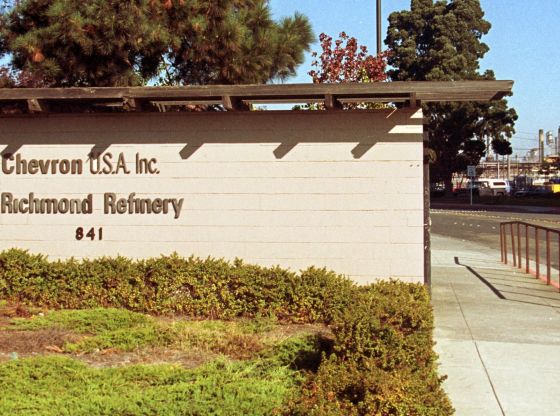
July 1, 2019
By Karen Savage
The country’s largest organization of mayors passed a resolution on Monday opposing any federal or state legislation that would grant fossil fuel companies immunity from climate liability lawsuits. The resolution had been championed by the mayors of several cities who have filed those lawsuits against the industry, hoping to hold those companies accountable for climate damages their cities have already suffered.
Those mayors won the support of the U.S. Conference of Mayors, which passed the resolution at their meeting in Hawaii. The resolution was co-sponsored by the mayors of Oakland, Richmond and Santa Cruz, Calif., as well as Baltimore and Boulder, Colo., which have already filed suits against the oil industry. The mayors of San Leandro and Torrance Calif., Austin, Honolulu, Salt Lake City and St. Petersburg, Fla., were also co-sponsors.
“Fossil fuel lobbyists tried to kill the resolution in the Environment Committee, but they failed as it passed 9-1,” said Richmond Mayor Tom Butt. “It was then adopted unanimously in the general session.”
The resolution is aimed at preventing legislation like the industry-backed Baker-Schultz Carbon Dividends Plan, which proposes taxing carbon emitters and returning the proceeds to the American public. Buried in the plan’s fine print is the waiver of the right to sue fossil fuel companies for climate change impacts.
Congressional leaders at a hearing on the economic and health consequences of climate change last month weren’t told that the Baker-Schultz plan would also immunize companies from climate liability lawsuits.
Ted Halstead, chief executive of the Climate Leadership Council, a policy group, and Americans For Carbon Dividends, an industry-backed organization founded to promote the plan, testified at the Congressional hearing.
The Baker-Schultz plan also calls for rolling back most greenhouse gas and other emissions regulations.
While no legislation has been introduced to implement the Baker-Schultz plan, the mayors’ group hopes to pre-emptively shoot it down. The resolution vows to oppose “any legislation, whether in Congress or state legislatures, that attempts to limit or eliminate cities’ access to the courts by overriding existing laws or in any way giving fossil fuel companies immunity from lawsuits over climate change-related costs and damages.”
The mayors said taxpayers should be protected from solely shouldering the costs of climate change impacts. They also demand that Congress ensure that cities have the resources to protect their residents—particularly low-income and disadvantaged communities—as well as vulnerable infrastructure.
Butt said cities across the U.S. are now facing hundreds of billions of dollars in climate change-related adaptation costs.
“Eight cities, six counties, and one state, collectively representing approximately 15,374,000 million people or 4.7% of the total population, have filed lawsuits over the past two years to protect their residents and taxpayers by holding fossil fuel companies accountable for costs of climate damages and adaptation measures,” the resolution said, adding that cities must have access to the courts in order to resolve disputes over climate change-related damages and adaptation costs.
The U.S. Conference of Mayors, the National League of Cities and the International Municipal Lawyers Association, have filed amicus briefs in support of many cities that have filed climate liability suits. They say those suits “raise textbook claims under state law, seeking to allocate fairly a portion of the significant costs required to protect city and county residents from harms inflicted by Defendants’ products.”
“Fossil fuel companies and related trade groups spent billions of dollars on public relations and lobbying campaigns to obscure the truth from the public and elected officials about the potentially catastrophic consequences of burning fossil fuels, even while some of those companies were protecting their own assets from rising seas and other impacts of climate change,” the mayors’ resolution said.
The American Petroleum Institute did not immediately respond to a request for comment.
“The science is clear and overwhelming that those costs are being incurred solely because of the actions of the fossil fuel companies,” Butt said.
“As mayors we need to continue our leadership advocating at the state and federal levels to protect our rights and defend our residents from the catastrophic damages of climate change which is impacting our cities at alarming rates.”
|

